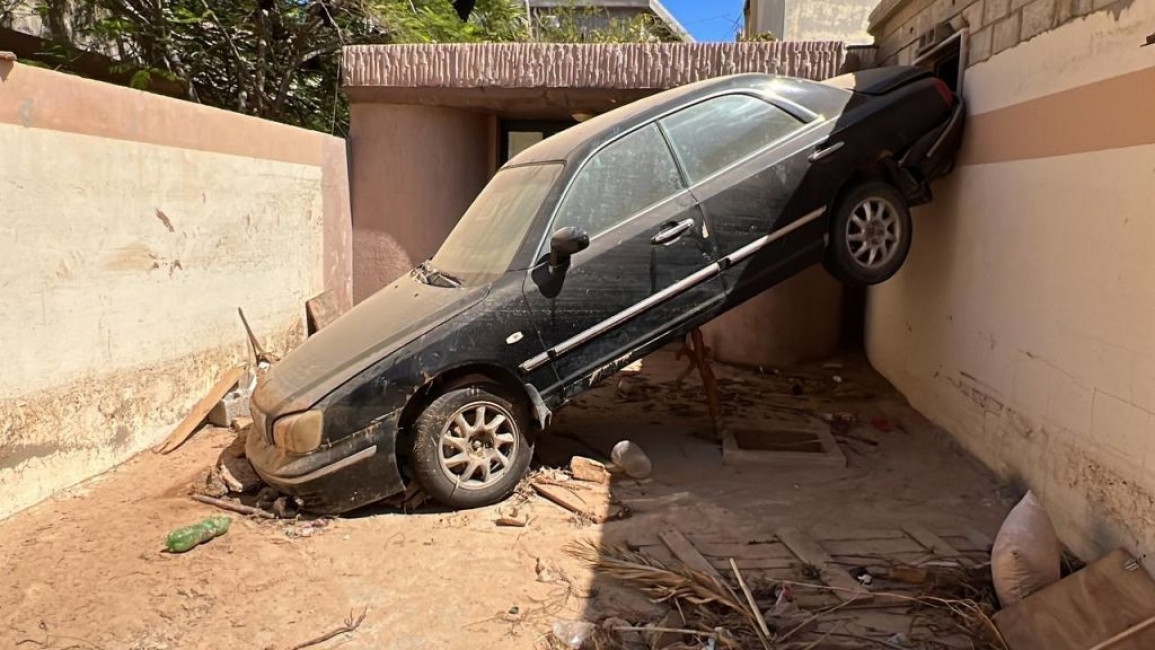Most Libya flood casualties could have been avoided: UN
The United Nations said on Thursday that most of the thousands of deaths in Libya's flood disaster could have been averted if early warning and emergency management systems had functioned properly.
With better functioning coordination in the crisis-wracked country, the human toll could have been far smaller, the UN's World Meteorological Organization (WMO) said.
It warned that other conflict-hit countries faced similar, dangerous deficiencies to their early warning systems.
If the system in Libya ad worked properly, "the emergency management forces would have been able to carry out the evacuation of the people, and we could have avoided most of the human casualties," WMO chief Petteri Taalas told reporters in Geneva.
His comments came after a tsunami-sized flash flood hit eastern Libya at the weekend, killing at least 4,000 people, with thousands more missing and feared dead.
The enormous surge of water burst two upstream river dams and reduced the city of Derna to an apocalyptic wasteland where entire city blocks and untold numbers of people were washed into the Mediterranean Sea.
Taalas said lacking weather forecasting and dissemination and action on early warnings was a large contributor to the size of the disaster.
'Unprecedented'
The years-long internal conflict and political crisis wracking the country meant its meteorological "observing network has been very much destroyed, the IT systems have been destroyed", he said.
"The flooding events came and there was no evacuation taking place, because there was not the proper early warning systems in place."
Libya's National Meteorological Centre did issue early warnings for the extreme weather coming 72 hours in advance and had notified governmental authorities by email, urging them to take preventative measures.
But WMO said it was "not clear whether [the warnings] were effectively disseminated".
While there had once been close cooperation between meteorological services and disaster management throughout Libya, this is no longer the case.
While no evacuation was ordered, a curfew was ordered in several eastern towns, including Derna, meaning most people were in their homes when the dams burst.
WMO's regional office in Bahrain said "the problem was not in issuing the warning" in a timely manner, but the fact that "there was no capacity to handle such a situation", especially as the failure of the two dams created an "unprecedented" situation.
"Disaster management has indeed broken down in Libya."
Sudan, Ukraine at risk
Taalas warned that other conflict-hit countries are facing similar dangerous early warning deficiencies, including Sudan, ravaged by five months of fighting between the army and a paramilitary group.
He said the head of the country's meteorological service had told him most of the staff "have escaped Khartoum and they are not able to forecast this kind of high-impact weather events anymore".
He also highlighted the situation in Ukraine, a year and a half into Russia's full-scale invasion.
"According to our information, about one third of the weather stations have been destroyed and they are not able to operate their systems at 24/7 anymore," he said.
"The estimation is that they can only get access to about 20 percent of the data that they used to have before the war," he said, adding that this could have a dangerous impact on the services.



